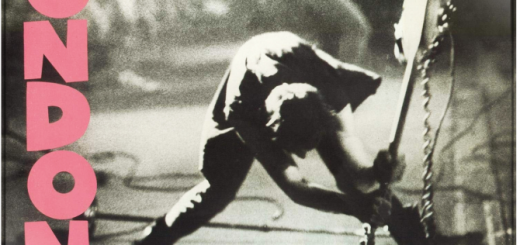White Man in Hammersmith Palais by The Clash Lyrics Meaning – Decoding Joe Strummer’s Punk Reggae Revelation
Lyrics
For the first time from Jamaica
Dillinger and Leroy Smart
Delroy Wilson, your cool operator
Ken Boothe for UK pop reggae
With backing bands sound systems
And if they’ve got anything to say
There’s many black ears here to listen
But it was Four Tops all night with encores from stage right
Charging from the bass knives to the treble
But onstage they ain’t got no roots rock rebel
Onstage they ain’t got no roots rock rebel
Dress back jump back, this is a bluebeat attack
‘Cause it won’t get you anywhere
Fooling with the guns
The British Army is waiting out there
An’ it weighs fifteen hundred tons
White youth, black youth
Better find another solution
Why not phone up Robin Hood
And ask him for some wealth distribution
Punk rockers in the UK
They won’t notice anyway
They’re all too busy fighting
For a good place under the lighting
The new groups are not concerned
With what there is to be learned
They got Burton suits, ha, you think it’s funny
Turning rebellion into money
All over people changing their votes
Along with their overcoats
If Adolf Hitler flew in today
They’d send a limousine anyway
I’m the all night drug-prowling wolf
Who looks so sick in the sun
I’m the white man in the Palais
Just lookin’ for fun
I’m only
Looking for fun
I’m only
Looking for fun
The numbing roar of distorted guitars, the haunting backbeat of reggae fusion, all cloaked under the spell of socio-political lyricism—The Clash’s ‘White Man in Hammersmith Palais’ is a cultural grenade tossed in the lap of a disillusioned generation. As the needle drops on this track, it becomes clear that we’re in for more than just a song; we are about to embark on a history-infused journey through the ethos of punk and the plight of the culture clashes of the late 70s.
With its clever melding of genres and subversive lyrics, the single transcends mere entertainment; it becomes a historical document, a biting critique that dissects the zeitgeist of its time. But what layers of meaning are stitched into its fabric? What truths does Joe Strummer seek to illuminate with his precisely strained vocal cords and sharply penned verses? We delve deep into the heart of the song, extracting the insights that continue to resonate through the years.
An Ode to Musical Mashup Mastery
The powerful intro of ‘White Man in Hammersmith Palais’ immediately grounds the listener in the revolutionary landscape of reggae-infused punk—a landscape that The Clash was instrumental in cultivating. As we pick apart the subtle layers, we unearth an anthem that is both a celebration of reggae’s roots and a critical eye on the punk scene’s sometimes hollow pageantry.
The song’s backbone lies in the symbiosis of reggae’s laid-back grooves and punk’s brash energy, birthing a hybrid that pulses with discontent and the desire for change. This fusion not only challenged genre norms but also represented a cultural intersectionality that echoed the band’s exposure to diverse influences and their discontent with the status quo.
Confronting Racism with Rhythm
Beneath the head-bobbing beats, Strummer pens a poignant plea against racial divides with the lines ‘White youth, black youth / Better find another solution.’ The song confronts both the audience and society at large, urging a collective introspection on systemic racism and calling for unity, rather than division.
At a time when race relations in Britain were tense and riots were not uncommon, Strummer’s voice became one that didn’t just highlight societal fractures but attempted to offer a rallying cry for solidarity against the oppressive undercurrents leveraged by institutions and cultural norms.
Cashing in on Rebellion
One of the song’s most biting commentaries is reserved for the commodification of rebellion—a process Strummer saw happening within the punk movement itself. The scathing observation ‘Turning rebellion into money’ serves as a condemnation of the way true political resistance can be packaged, marketed, and sold back to the very people it was meant to inspire.
This incendiary line not only targets fellow musicians who willingly trade their anti-establishment messages for commercial success but also indicts a broader societal trend toward consumerism and the dilution of meaningful protest.
The Haunting Subtext of a Historical Name-Drop
Strummer invokes the specter of Adolf Hitler in a way that is bound to shock and provoke. ‘If Adolf Hitler flew in today / They’d send a limousine anyway’ is a stark reminder of how quickly society can be seduced by power, even power as malignant as Hitler’s, so long as it presents itself with a certain sheen.
This historical allusion serves as a chilling warning about the cyclical nature of history and the ever-present danger of falling into old patterns of submission and adulation in the face of authority, a theme all too relevant then as it is now.
Peering into the Heart of the White Man’s ‘Fun’
The self-identification as the ‘white man in the Palais’ is as multifaceted as it is significant. Here exists Strummer as the observer, empathizer, and critic, encapsulating the duality of enjoying the music and recognizing the larger issues at play. The admission of ‘just looking for fun’ suggests an irony, pointing towards the often shallow pursuits of pleasure without acknowledging the broader societal and cultural implications.
Strummer co-opts the phrase positing it as an ironic layer atop the surrounding social commentary. It is an acknowledgment of his own positionality and privilege within the complex dynamics he critiques, creating a dichotomy between superficial entertainment and the gravity of the topics tackled in the song.








